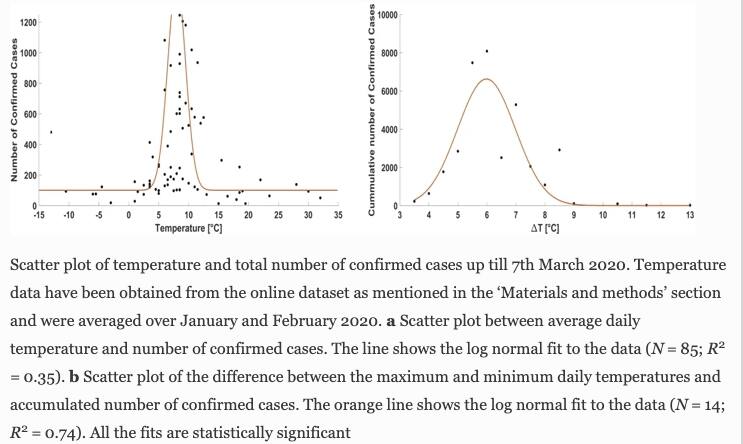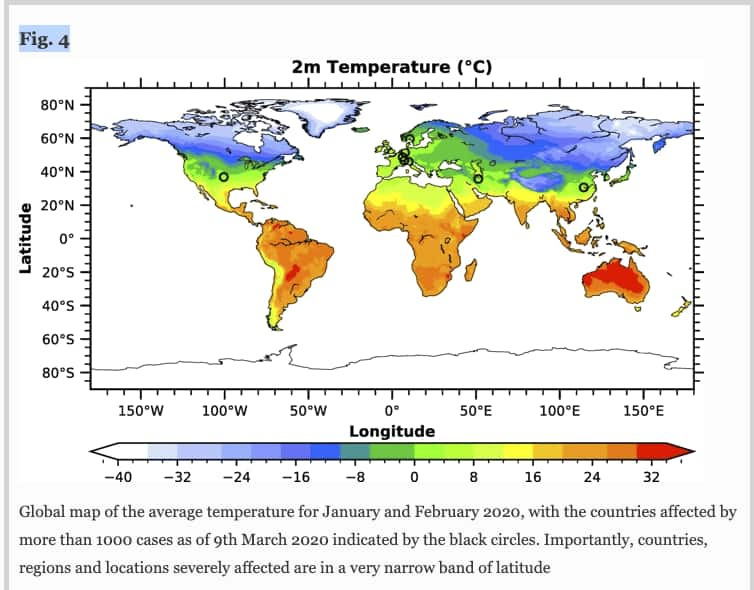Lower COVID-19 cases in hotter regions, reveals IIT-Madras study
A recent study by a team of researchers at IIT-Madras have found lower cases of COVID-19 in regions with high temperature. The data collected from around 85 locations shows that 90% of the coronavirus confirmed cases were recorded from the region with temperatures ranging between 3°C to 12°C.
Trending Photos
)
New Delhi: A recent study by a team of researchers at IIT-Madras have found lower cases of COVID-19 in regions with high temperature. The data collected from around 85 locations shows that 90% of the coronavirus confirmed cases were recorded from the region with temperatures ranging between 3°C to 12°C.
For the study, researchers saw over 1,07,351 confirmed cases from 85 places around the world including the highly affected provinces in China, South Korea, Italy, France, Iran, Germany, the US, Spain, and Japan. This data was further analysed on meteorological parameters.
The reports also suggested that there's a very strong relationship between the UV index and the number of confirmed cases. The areas where the UV index was higher than 5, the number of confirmed infected cases decreased further. It has been documented that higher temperatures or prolonged exposure to UVC radiation lower the virus infectivity.


The study also suggested that artificial UV radiation could be one of the effective ways for sterilizing built-up environments for reducing the spread of the virus amongst the community.
The earlier studies suggest that the most common influenza viruses are seasonality, which implies that during colder temperatures, influenza caused by viruses increases, which then subside with the warming of air temperature. Although, this assumption so far hasn't been backed by any robust analysis and scientific investigation.
Professor Sachin S Gunthe from the Civil Engineering department of IIT-Madras in his previous studies has shown that the survival of other influenza viruses has reduced exposure to high temperatures and higher UV index. However, this study is purely based on statistical evidence. There is no physiological evidence to prove this fact.
Stay informed on all the latest news, real-time breaking news updates, and follow all the important headlines in india news and world News on Zee News.
Live Tv







)
)
)
)
)
)
)
)
)
)
